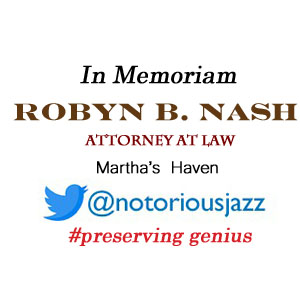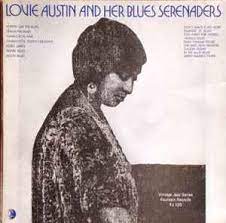
Daily Dose Of Jazz…
Bob Shoffner was born on April 4, 1900 in St. Louis, Missouri. Growing up he played drums and bugle before settling on trumpet at age eleven. Playing trumpet in a military band, he served in the U.S. Army from 1917-1919, and after his discharge he played with Charlie Creath and Tommy Parker in territory bands.
Relocating to Chicago, Illinois in 1921, Bob played with John H. Wickcliffe, Everett Robbins, and Mae Brady. He returned to St. Louis, served briefly under Creath before heading back to Chicago to play with Honore Dutrey. Then, in 1924,he replaced Louis Armstrong in King Oliver’s Creole Jazzband, playing with Oliver until 1927. He went on to spend time with Dave Peyton and Lottie Hightower during this time as well, and recorded with Lovie Austin, Jimmy O’Bryant, Ida Cox, and Luis Russell.
Shoffner suffered a lip ailment in 1927, but returned after a few months to hit with Charles Elgar in 1928, Erskine Tate, Jerome Carrington, McKinney’s Cotton Pickers in 1931, and Frankie Jaxon in ‘32. A move to New York City in 1934, had him with Fess Williams, Fletcher Henderson, and Hot Lips Page towards the end of the decade..
Around 1940 he returned once more to Chicago and took a job working for the state but recorded with Richard M. Jones in the middle of the 1940s. Taking a hiatus from music until 1957he came back to play with Franz Jackson’s Original Jazz All-Stars from 1957 to 1963.
Health concerns forced him into semi-retirement after this time. Trumpeter Bob Shoffner transitioned on March 5, 1983.

Daily Dose Of Jazz…
Pete Johnson was born Kermit H. Johnson on March 25, 1904 in Kansas City, Missouri. Raised by his mother after the father deserted the family, financially distressed, he was placed in an orphanage at three. Homesick, he ran away and returned home. By the age of 12, finding work to ease the financial burden at home, he dropped out of school in the fifth grade as a result of his efforts.
Beginning his musical career in 1922 as a drummer in Kansas City, Missouri. He began piano about the same time he was learning the drums. His early piano practices took place in a church, where he was working as a water boy for a construction company. From 1926 to 1938, he worked as a pianist, often working with Big Joe Turner. with record producer John Hammond that led to an engagement at the Famous Door in New York City, and an in the From Spirituals to Swing concert at Carnegie Hall. Working locally, touring and recording with Turner, Meade Lux Lewis, and Albert Ammons kept him busy during this period. He appeared in the film short Boogie-Woogie Dream in 1941.
The song Roll ‘Em Pete, composed with and featuring Turner on vocals and Johnson on piano, was one of the first rock and roll records. They went on to record Johnson and Turner Blues and Rocket 88 Boogie.
By 1946 Pete recorded a concept album, Pete Johnson’s Housewarmin’, with J. C. Higginbotham, J. C. Heard, Albert Nicholas, Hot Lips Page, Clyde Bernhardt. Budd Johnson, and a young singer, Etta Jones. It was later re-released as Pete’s Blues.
The Fifties saw Johnson moving to Buffalo, New York, where he suffered health and financial difficulties including being partially paralyzed by a stroke. He held a series of jobs over the next few years supplementing them with occasional gigs. He continued to record, and toured Europe in 1958 with the Jazz at the Philharmonic ensemble, despite the fact that wasn’t in thebest of health. Returning to the States, he accompanied Big Joe Turner, Chuck Berry and Big Maybelle at the Newport Jazz Festival.
Diagnosed with a heart condition, diabetes and plagued with several strokes, Pete lost the mobility in both hands. Four years ater he began losing his eyesight. Royalties were dribbling in from Blue Note and Victor until he was finally accepted into ASCAP, which ensured that some of the royalties would be received on a regular basis.
His final live appearance was the Spirituals to Swing concert at Carnegie Hall in January 1967, his eighth and final appearance at this event. Pianist Pete Johnson, who played jazz and boogie~woogie, transitioned two months later in Meyer Hospital in Buffalo, on March 23, 1967, at the age of 62, two days before his 63rd birthday.
More Posts: bandleader,history,instrumental,jazz,music,piano
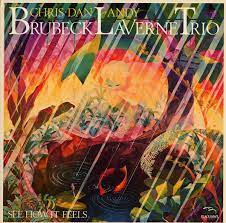
Daily Dose Of Jazz…
Christopher Brubeck was born on March 19, 1952 in Los Angeles, California to pianist and composer Dave Brubeck. By the age of twenty he was joining his father and brothers Darius and Daniel in The New Brubeck Quartet.
Having toured for about 30 years in a group called Triple Play, he joined with guitarist Joel Brown and singer and harmonica virtuoso Peter Madcat Ruth, and swung jazz Louisiana style. He was a member of New Heavenly Blue, Chris also participated and recorded as a keyboardist/trombonist/guitarist in 1970’s Educated Homegrown.
In 1999, Chris and his brother Daniel joined with other musicians to form The Brubeck Brothers Quartet, having previously partnered with Andy LaVerne and released a 1972 album, The Brubeck-LaVerne Trio. He has performed with Mike DeMicco and Chuck Lamb.
In 2003, Chris played his first Concerto for Bass Trombone and Orchestra with the Czech national Symphony Orchestra in Prague, Czech Republic. A year later, he composed his own concerto titled, The Prague Concerto for Bass Trombone and Orchestra. Many of his classical compositions still contain strong hints of the jazz influence of his father.
Grammy nominated electric bassist, bass trombonist and pianist Chris Brubeck continues to pursue his musical explorations.
More Posts: bandleader,bass,history,instrumental,jazz,music,piano,trombone
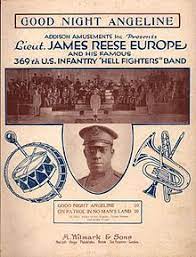
Daily Dose Of Jazz…
James Reese Europe was born on February 22, 1881 in Mobile, Alabama and in 1891 his family moved to Washington, D.C. In 1904 he moved to New York City and six years later he organized the Clef Club, a society for Black Americans in the music industry. In 1912, the club, with its 125 members who played in various configurations, made history when they became the first band to play a proto-jazza concert at Carnegie Hall for the benefit of the Colored Music Settlement School.
The importance of this historic concert is that it took place 12 years before the Paul Whiteman and George Gershwin concert at Aeolian Hall, and 26 years before Benny Goodman’s famed concert at Carnegie. The Clef Club’s performances played music written solely by Black composers, including Harry T. Burleigh and Samuel Coleridge-Taylor.
In 1913 and 1914 Jim made a series of phonograph records for the Victor Talking Machine Company. These recordings are some of the best examples of the pre-jazz hot ragtime style of the U.S. Northeast of the 1910s, predating and protecting the idea that the Original Dixieland Jass Band recorded the first jazz pieces in 1917 for Victor.
Europe was known for his outspoken personality and unwillingness to bend to musical conventions, particularly in his insistence on playing his own style of music. During World War I, Europe obtained a commission in the New York Army National Guard, where he fought as a lieutenant with the 369th Infantry Regiment otherwise known as the “Harlem Hellfighters” when it was assigned to the French Army. He went on to direct the regimental band to great acclaim. They made their first recordings in France for the Pathé Brothers.
Returning home in 1919 he made more records for Pathé with Noble Sissle and continued to lead his band. During a talk backstage with two of his drummers, Steve and Herbert Wright about their stage behavior, Herbert got agitated and stabbed Europe in the neck with a pen knife. The show went on, Jim went to the hospital but doctors were unable to stem the flow of blood.
Arranger, composer and bandleader Jim Europe, who also played piano and violin, and was the leading ragtime and early jazz figure on the Negro music scene of New York City in the 1910s, transitioned on May 9, 1919.
More Posts: arranger,bandleader,composer,history,instrumental,jazz,music,piano,violin
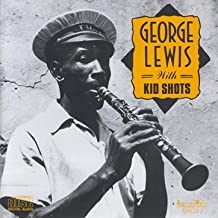
Daily Dose Of Jazz…
Louis “Kid Shots” Madison was born on February 19, 1899 in New Orleans, Louisiana. He studied cornet under David Jones, Louis Dumaine, and Joe Howard.
In 1915, he becames the drummer in the Colored Waif’s Home band with Louis Armstrong. By 1923, he was playing second cornet with the Tuxedo Brass Band. During the 1930s, he played with the WPA Brass Band and in the Forties he performed as a member of the New Orleans Eureka Brass Band.
In January 1948, cornetist Kid Shots Madison suffered from a stroke and transitioned eight months later in September in his hometown.
More Posts: cornet,history,instrumental,jazz,music


